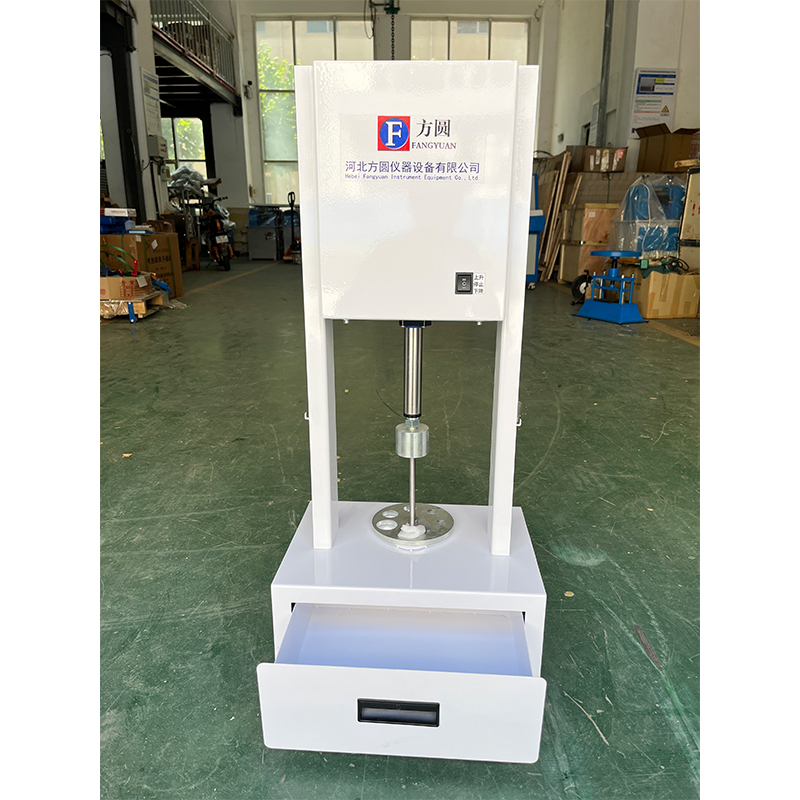Metal Tensile Testing Machine for Material Strength Analysis and Quality Control
Understanding Metal Tensile Testers Essential Equipment for Material Properties Evaluation
In the field of materials science and engineering, the mechanical properties of metals are crucial for determining their suitability for various applications. One of the most critical tests for evaluating these properties is the tensile test, which measures how materials respond to forces that attempt to pull them apart. To carry out this test accurately, engineers and scientists rely on metal tensile testers.
What is a Metal Tensile Tester?
A metal tensile tester, also known as a universal testing machine (UTM), is specifically designed to evaluate the tensile strength, yield strength, elongation, and reduction of area of metal samples. These testers apply a controlled tensile load to a specimen until it ultimately fails. The tester records the amount of force applied and the elongation experienced by the specimen, creating a stress-strain curve that represents the material's behavior under tension.
Importance of Tensile Testing
Tensile testing is vital for a variety of reasons. It helps in quality control during manufacturing processes and ensures that materials meet specified standards and regulations. For industries like aerospace, automotive, construction, and manufacturing, understanding the mechanical properties of metals directly impacts performance, safety, and durability.
Tensile tests can also be crucial in research and development (R&D). When developing new alloys or composites, engineers must assess how these materials will behave under load. The accuracy and reliability of a metal tensile tester can significantly influence the development and optimization of new materials.
Components of a Metal Tensile Tester
A typical metal tensile tester consists of several key components
1. Loading Mechanism This is the component that applies the tensile force to the specimen. It can be hydraulic, mechanical, or electronic, depending on the design and capacity of the machine.
2. Load Cell This device measures the force being applied to the specimen. It converts the mechanical force into an electrical signal, which is then recorded and displayed.
metal tensile tester

3. Extensometer This measures the elongation of the specimen during the test. Some testers come with built-in extensometers, while others have external units that can be attached to the specimen.
4. Control System Modern metal tensile testers often feature sophisticated computerized systems that control the testing process, record data, and generate stress-strain curves automatically. This enhances the accuracy and efficiency of the testing process.
5. Software Accompanying software allows users to analyze the data, compare results, and even simulate different testing conditions. This software can also assist in maintaining records for quality assurance compliance.
Types of Metal Tensile Testers
Metal tensile testers come in various configurations, tailored for different applications and materials
- Electromechanical Testers These are ideally suited for testing metals and other materials at moderate speeds. They offer high precision and can be used for a wide range of applications.
- Hydraulic Testers Capable of exerting significant force, hydraulic testers are typically used for materials requiring high tensile strength measurements, such as heavy-duty steel or large metal components.
- Micro and Nano Tensile Testers These specialized testers are used for very small specimens, helping researchers investigate the mechanical properties of thin films and microfabricated materials.
Conclusion
Metal tensile testers are indispensable tools in the realm of material testing and analysis. They provide invaluable data that not only aid in material selection but also play a crucial role in ensuring safety and reliability in products across multiple industries. Furthermore, as technology continues to advance, we can expect improvements in the precision, speed, and user-friendliness of tensile testing equipment. Understanding the capabilities and applications of metal tensile testers is fundamental for engineers and researchers aiming to push the boundaries of material science and engineering. With accurate testing and evaluation, industries can continue to innovate, developing stronger, more resilient materials for the future.
-
The Role of Tensile Force Testers in Quality Control and Material Science
NewsAug.01,2025
-
Maintenance and Safety Tips for Aging Ovens
NewsAug.01,2025
-
Density Balance in Forensic Science
NewsAug.01,2025
-
Advanced Optical Measurement Technologies
NewsAug.01,2025
-
A Buyer’s Guide to Tensile Test Machines
NewsAug.01,2025
-
Why the Conductor Resistance Constant Temperature Measurement Machine Redefines Precision
NewsJun.20,2025
 Copyright © 2025 Hebei Fangyuan Instrument & Equipment Co.,Ltd. All Rights Reserved. Sitemap | Privacy Policy
Copyright © 2025 Hebei Fangyuan Instrument & Equipment Co.,Ltd. All Rights Reserved. Sitemap | Privacy Policy
